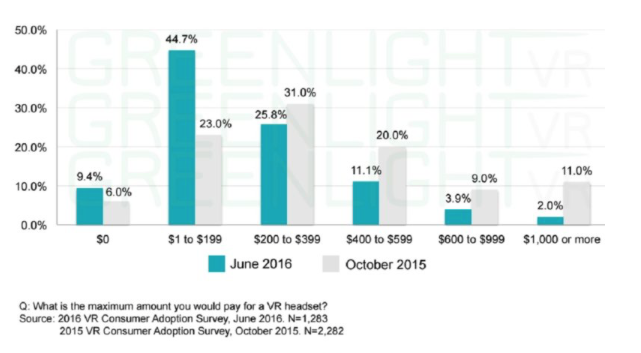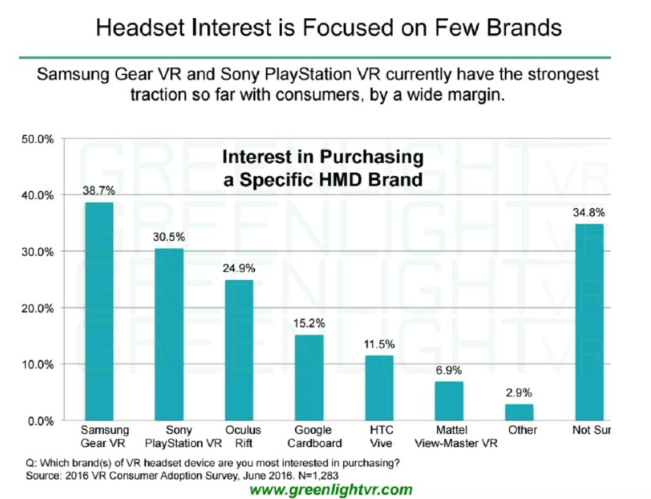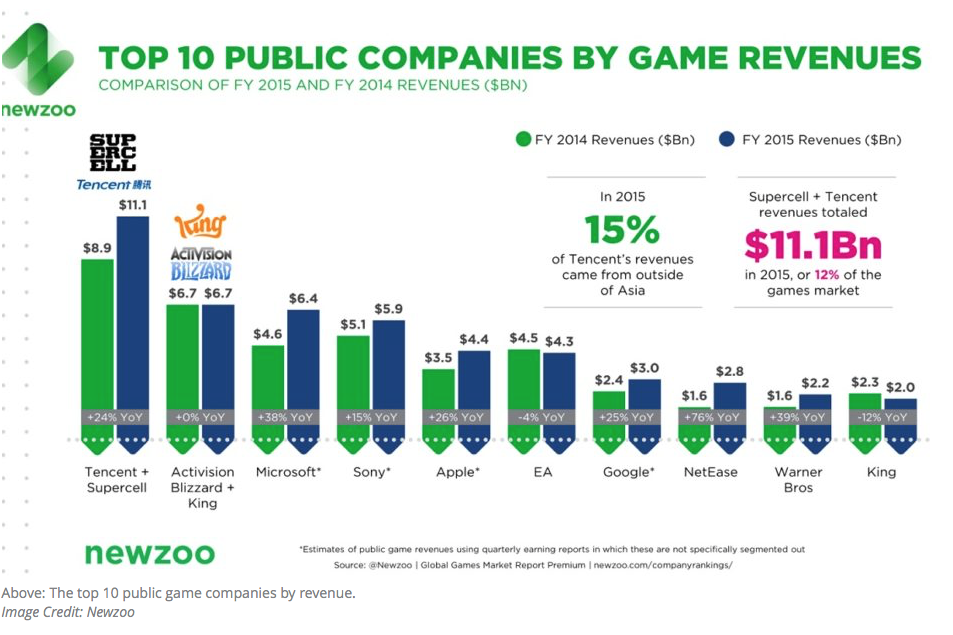Just ahead of E3 2016, Starbreeze AB announced a pair of big hardware technology deals with Acer and IMAX to secure its place in the burgeoning location-based virtual reality entertainment market. These will include specialized theaters and arcades where audiences may experience premium VR at a low cost.
The Swedish company is entering a joint venture for the StarVR Virtual Reality (VR) Head-Mounted Display (HMD) with Acer. The two companies aim to cooperate on the design, manufacturing, promotion, marketing, and sales of the StarVR HMD to the professional and location-based entertainment market.
Separately, IMAX will create a premium VR experience that will leverage Starbreeze’s StarVR headset technology, which provides a 210-degree full peripheral field of view—double that of any other VR headset currently available. Starbreeze’s existing library of VR entertainment content and games will be made available to consumers, as well as the premium content resulting from the recent IMAX Google VR camera business. IMAX will also look to establish new VR content partnerships through its existing Hollywood filmmaker and studio relationships.
Starbreeze will bring new interactive content through its publishing and partnerships in the gaming industry, which includes its relationship with leading Hollywood studio Lionsgate, with whom Starbreeze is developing its John Wick: The Impossible Task VR game as well as others.
Emmanuel Marquez, chief technology officer at Starbreeze, talks to [a]listdaily about the ramifications of these new deals in this exclusive interview.
What does partnering with Acer bring to the table for the StarVR virtual reality headset?
There are so many things. We’re a gaming company that came up with this slightly crazy idea: that we should own the full vertical of VR. We saw some great potential for the medium early on and knew we wanted to develop for it, but considering the early stage of development on the hardware side, we quickly realized that we needed more juice—better specs, if you will—to fully realize our vision for it. Acquiring InfinitEye was our first step, and we believe we’ve done great so far, but each version of the headset you’ve seen so far has been assembled by hand. To fully launch the StarVR headset on the market, and especially with our new collaboration with IMAX, we really needed a partner that knows manufacturing, and Acer was the perfect fit.
We’re seeing a more crowded marketplace for VR hardware. How do you see your technology standing out from the pack?
There are so many applications for virtual reality where the pro market is more demanding on specs and not as price sensitive. We do deliver a premium experience with generally higher specs, and the 210-degree field-of-view makes a difference for sure. We feel that we can differentiate ourselves very well from other segments, and we’re very comfortable catering to the pro market as a focus; especially with the IMAX collaboration putting the StarVR headset in IMAX VR centers all across the world.
How does Acer’s brand and marketing muscle help your VR hardware endeavors?
We’re still in the letter of intent phase with our contract with the details being worked out. But of course, we feel that a well-established hardware partner will be able to bring a lot to the table.
Starbreeze has said previously that its VR games will be cross-platform. How will you entice gamers to invest in your hardware over Vive, Oculus, or PlayStation VR?
There’s plenty of room in the market still, and we believe we can find our niche that fits the profile of the StarVR. So we’re looking to focus on the pro markets, meaning business-to-business applications and location-based entertainment, like our collaboration with IMAX, and we will approach the market somewhat differently. That said, it doesn’t mean we’ll never sell to consumers, but our main focus will definitely be the pro markets.
How are the marketing dollars from Facebook, Google, Microsoft, and other tech giants raising the awareness of VR and helping a company like Starbreeze?
We love people spreading the gospel of VR, in any shape or form. It’s a new medium truly, and nothing like 3D glasses. VR needs to be experienced first-hand—and we mean real VR, not just a 360 video.
What have you learned about developing games for VR through working on The Walking Dead and John Wick games?
There are so many things in game mechanics that you have to re-think and re-imagine. And so many things that people react to differently that you only learn by doing, testing and then re-iterating. It’s a fun and very gratifying process where you basically have to start off by acknowledging that you need to think differently.
What challenges remain in creating long-form interactive content for home VR?
We’re still learning and pushing the boundaries of what’s possible, and we’re seeing longer and longer usage times in the headsets on the market. There are multiple challenges ranging from hardware limitations, comfort, and how to present the experiences, but we imagine that the time people stay in the experiences will increase as we learn and develop. Maybe not this year or next, but definitely in the future. This is also why we feel that the location-based market is a good place for us to see how people react to different experiences in a controlled setting.
With location-based VR, how do you see your partnership with IMAX helping to keep a distance between what’s available at the mall verses what’s available at home?
The price of the initial investment of a head-mounted display and PC that powers the headset aside—it’s not so much about keeping a distance but that we can offer experiences that really blow your mind, which wouldn’t be as accessible for the homes. You already have challenges with finding that spot in the house where you can move around in VR without getting your knees bruised from bumping into furniture. There are so many great accessories and set-ups today that enhance your experience that just wouldn’t be viable to put in a home. We can cater to that.
How are you working with IMAX?
We’re setting up a joint venture where we’ll collaborate on location-based premium VR experiences. We’re providing the StarVR and our knowledge from the tech side. Having had the Overkill’s The Walking Dead experience on the road gave us so much insight on people management, getting people comfortably in and out of the experiences, running the tech on the road, and in different locations and weather conditions.
IMAX’s obvious know-how about location-based entertainment is a huge asset, as well as their retail and movie industry knowledge. While we bring our gaming expertise, IMAX complements us really well on the cinematic side.
The Void is bringing Ghostbusters to its platform and opening stand-alone entertainment centers. Do you see VR as the next gen arcades?
Absolutely, and in the interim, as we continuously update the hardware and learn more about how to craft the most engaging and immersive experiences, location-based is a perfect way to introduce VR to the masses.
Based on how quickly gaming technology develops, how do you prevent a repeat of the arcade crash of the ’90s after home consoles caught up?
I would rather compare VR tech to the shift in TV and display manufacturing evolution. My bet is that we’ll make leaps in development quite frequently over the next few years.
You’ve worked on several movie licenses for VR gaming. What role do you see both the home and location-based markets playing in allowing filmmakers to connect with fans of their franchises?
The VR experiences can definitely serve as a second screen (or should we call it third?), to amplify any experience shown in the theaters. Imagine going to watch Star Wars on the big screen, then go into the VR center next door and jump into your favorite pod racer and take it for a spin.
When do you foresee your location-based experiences becoming a reality in the U.S.?
We started the StarCade project because we wanted to learn more about VR experiences, and it fit our vision of being location-based, cost-effective and accessible. While we planned the project, our two recently announced collaborations were taking shape. Fast forward to today, and we now have a fantastic production partner in Acer, and a superb collaboration with IMAX.
IMAX definitely shares our vision for location-based entertainment and we’re very proud to have them as a partner for the re-imagined version of our StarCade project. We’ve now consolidated all the StarCade work into the IMAX VR collaboration and we’re excited to bring both gaming and cinematic experiences into the venues. The first pilot venue will still open in LA, but we’ve selected a new location and it’ll be opening later this year. We’ll then start rolling the concept out to more locations.
VR is huge in China right now. What type of global market do you see for this technology?
Asia really has location-based figured out, China included. There’s a great culture of going to a specific location, meeting with your friends and hanging out with karaoke bars, sports bars, internet cafes, etc. We definitely see the potential for VR centers in the region.



